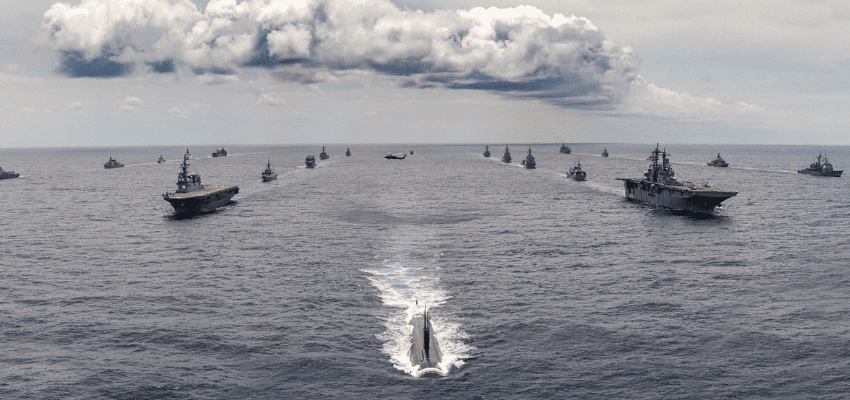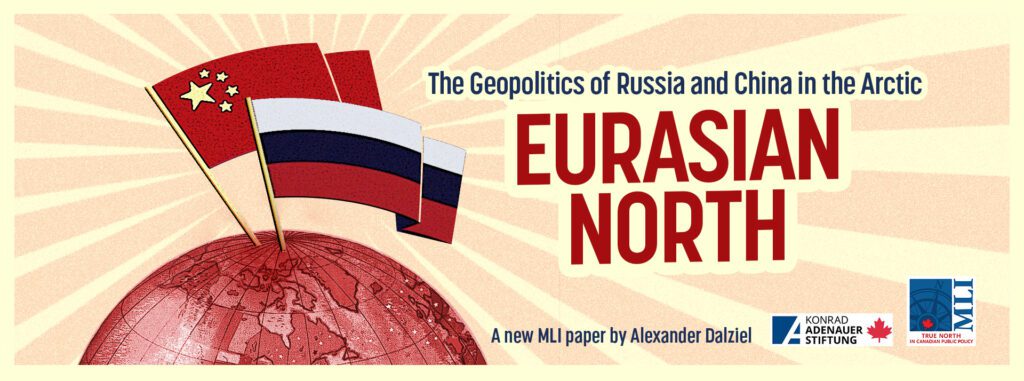This article originally appeared in the Japan Times.
By Stephen Nagy, July 9, 2024
Russia’s war in Ukraine, China’s decades-long militarization and threats to reunify with Taiwan by force and the proliferation of weapons of mass destruction on the Korean peninsula have exposed the flawed rationale for post-Cold War demilitarization and the dismantling of the capacity to produce munitions and defensive equipment to meet 21st-century security challenges.
Putin’s neoimperialist invasion of Ukraine has further revealed to Japan and many like-minded countries and political entities such as Taiwan the reality that authoritarian states are pursuing a path toward a multipolar world in which power, not the rule of law, is the basis of our international order.
Moscow has been able to do that with the massive use of military force to engage in a full-scale invasion of a sovereign country. The aggression has revealed the inability of European powers to produce enough munitions to support Ukraine’s resistance, let alone have any surplus to deal with other contingencies that could affect their interests.
Imagine a mass terrorist attack within Europe or a Taiwan contingency manifesting itself either at another or at the same time. Where would Europe get the military resources needed to deal with these challenges, as it barely manages to supply Ukraine?
The war has demonstrated that the social and technological narratives that the Europeans, Canadians and even the Japanese and Australians have used as the basis for not investing in defense equipment and manufacturing capabilities — and even not meeting their spending pledges to collective defense organizations such as NATO — have been flawed.
What has become clear is that without the United States’ tremendous military, defensive and diplomatic capabilities, it would have been difficult to even think that Kyiv would be able to resist Putin’s attempt to erase Ukraine’s identity, culture and state.
Today many countries are rethinking their so-called sociotechnical imaginaries — shared visions and understandings of social life and technology — of what kind of military and defense capabilities are needed to deal with security challenges in their backyard and beyond.
The ideas that many countries have held in the post-Cold War period are typified by scholars such as Francis Fukuyama, who argued in his book “End of History and the Last Man” that democracy was the final stage in political development. For Fukuyama, the collapse of the Soviet Union marked the beginning of liberal democratic institutions and forms of government that ushered in an era of stability and peace through international law, diplomacy and relying on communication, not military power, as the basis for maintaining the international order.
However, current scenarios have fractured the post-Cold War illusion that military power and defense production capabilities are not necessary. They have also given a new meaning to the doctrine of “peace through strength” adopted by former U.S. President Ronald Reagan, who also frequently used the proverb “trust, but verify” (which, ironically, is Russian).
We do see some states, like Japan, facing up to the reality of new security challenges. For instance, Japan’s latest National Security Strategy, announced in 2022, commits to doubling defense spending by 2027.
But this will be tough, in part due to the continued depreciation of the yen. The goal is also made difficult by the downward pressure on the Japanese economy associated with demographic challenges. Selective diversification away from the Chinese market and supply chains and global energy and food inflation associated with Russia’s invasion of Ukraine will further complicate the commitment to doubling defense spending.
These difficulties sit alongside the views held by millions of Japanese citizens who are still wedded to the peace Constitution, such as the belief that if only Japan remains neutral and pacifist, authoritarian states will leave it be.
Fortunately, the consensus among Japanese people is edging toward an understanding that without an appropriate defense budget, the country will not be able to meet the challenges it faces in the broader Indo-Pacific region or contribute to pushing back against brutish attempts to change borders through force.
In this sense, Japan and other countries holding such notions, which challenge established security paradigms, are all becoming much more “American-like” — meaning that they prioritize investment in defense. But much more needs to be done.
The U.S. has maintained a military capability that enables it to fight on three fronts simultaneously: extraordinary aircraft carrier fleets and substantial defense spending and research — with the view that military power it still essential to maintaining the international rules-based order.
It goes without saying that yes, the U.S. is sometimes hypocritical when it comes to enforcing this order. Its invasion of Iraq after 9/11 is a case in point.
Notwithstanding, Washington behaves consistently, generally speaking.
Many countries have criticized the U.S. for being overly focused on building up military power since the end of the Cold War. Allies and adversaries alike continue to think that Washington overinvests in military might and underinvests in diplomacy and trade.
These criticisms are not without merit. For example, the U.S. today would be in a much stronger position if it had not withdrawn from the Trans-Pacific Partnership and engaged in more trade with countries in the Indo-Pacific.
Nonetheless, from Paris to Berlin, Tokyo to Seoul, and Canberra to Ottawa, there is a growing sense that a double or triple contingency — a crisis on the Korean peninsula or in Taiwan and instability in the South China Sea and potentially in the Himalayan region, given border tensions between China and India — would result in the inability of like-minded countries to apply the military tools necessary to ensure the current international rules-based order remains intact. And in efforts to ensure authoritarian and revisionist states do not succeed in reshaping borders by force being hampered.
The war in Ukraine has exposed the flawed rationale not only of reducing military capabilities to promote regional security, but also to deal with what Nikkei commentator Akita Hiroyuki calls the “connectivity of war.”
Simply put, one theater of war can no longer be understood in isolation from another.
This means that proponents of the current international order will need the capabilities to contribute to defense and security cooperation in at least two conflicts at once. This will require countries in the European Union, as well as the United States, Japan, South Korea, Canada, Australia and many others to boost their defense production, coordinate resources and discuss defense and strategy burden sharing.
Authoritarian challengers are ahead of the game. Putin’s visit to North Korea secured munitions that will be used on the Ukrainian front line. While the Russian president’s visit to China did not lead to the transfer of military equipment, it consolidated ties to allow Beijing to continue delivering parts that can be used in the war on Kyiv. Even Iran has contributed to the conflict by providing drones.
Rethinking how we deal with authoritarian challenges to the gloal order will entail coordinated diplomacy, stronger economic security cooperation in the form of resilience, trade agreements and technology exchanges, but also a boost in the production, manufacturing and distribution of munitions and other defense equipment in several regions, including in the Indo-Pacific and Europe.
Whether we like it or not, we are all becoming American in our security calculus as failed defense assumptions make us vulnerable to authoritarian expansionism.
Stephen R. Nagy is a professor at the department of politics and international studies at the International Christian University. Concurrently, he is a senior fellow at the MacDonald Laurier Institute and the Asia-Pacific Foundation, a fellow at the Canadian Global Affairs Institute, a senior fellow with the East Asia Security Center and a visiting fellow with the Japan Institute for International Affairs.







